Think of your school years. Let me guess, you were told to put your head down, do your classes, get your grades and leave for the adult world — but this time in children and teen’s lives should be about more than just an examination curriculum. In fact, there’s much more to be learned.
This is something that Rotterdam International Secondary School’s (RISS) new curriculum is looking to teach its students. We sat down for a chat with Dr Gilbert-Sáez, Principal of RISS, and what followed was an interesting conversation about childhood, curiosity, and leadership.
But before we get into the details, allow us to introduce Rotterdam International Secondary School — or as Dr Gilbert-Sáez likes to call it, “Rotterdam’s International School.” 😉
Introducing Rotterdam International Secondary School
Located in central Rotterdam, this growing international school offers students more than an international experience. The school’s holistic approach to learning has created a brand new curriculum powered by programmes designed to help their students grow.
“No single nationality overpowers the other, in both the student body and the staff,” explains Dr Gilbert-Sáez. “We’ve got over 77 different nationalities! This means that you are delivering a truly international experience and not just a British, American, or Canadian school.”
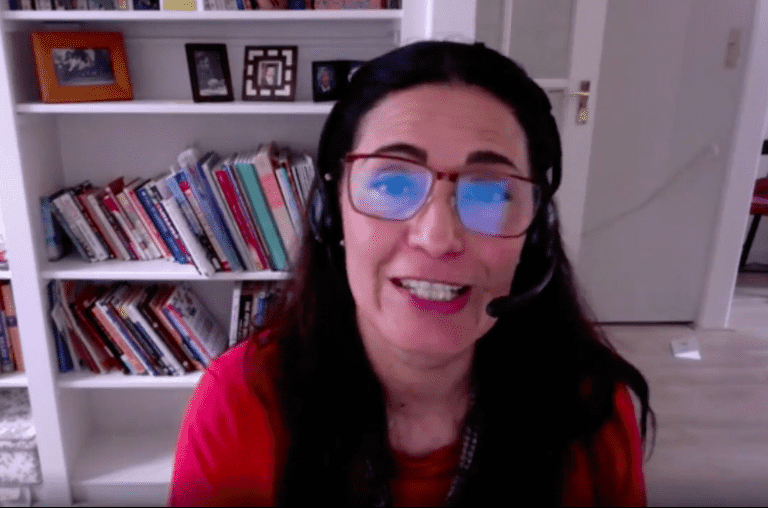
What makes RISS different?
That being said, Rotterdam International Secondary School is about much more than its many flags. The school is always exploring ways to innovate how its students are taught.
Educating for self-awareness, curiosity and integrity
Students of RISS are taught beyond the basic requirements to get a diploma, but also find self-awareness, discover their passions, and define their values.
“Qualifications are important but they’re not enough,” Dr Gilbert-Sáez tells us. “Commitment to learning is fundamental but the jobs people are doing now may not exist in a year. We want to nourish the natural curiosity that students arrive with.”
Alongside curiosity is another strength: integrity. Dr Gilbert Sáez uses the example of world leaders through the pandemic as an example. “A high education is not always enough, sometimes what leadership lacks is integrity. If we are going to teach leadership, we must also teach values.”
Traditional ways of learning meet innovation
While RISS offers traditional diplomas such as the International General Certificate of Secondary Education (IGCSE) and International Baccalaureate Diploma Programme (IBDP), the school takes its education a step beyond the examination curriculum.
Through initiatives like the Pastoral Programme, RISS Rose Programme, and RISS Reach Programme, Rotterdam International Secondary School teaches its students practical skills and values to take with them for life after school exams.
Pastoral Programme
This holistic approach to teaching is enabled through their Pastoral Programme where RISS pays special attention to its students, tackling issues that fall outside the realm of examinations and school work.
“Guidance, support and care are everything to us. If a child is not happy, hungry, or loved, that child will not be able to learn anything,” says Dr Gilbert-Sáez.
The Pastoral Programme exposes students to issues in the world whilst also protecting and supporting their childhood. The two-hour per week initiative tackles issues outside a student’s school environment, such as drugs, sexual education, identity, and relationships.
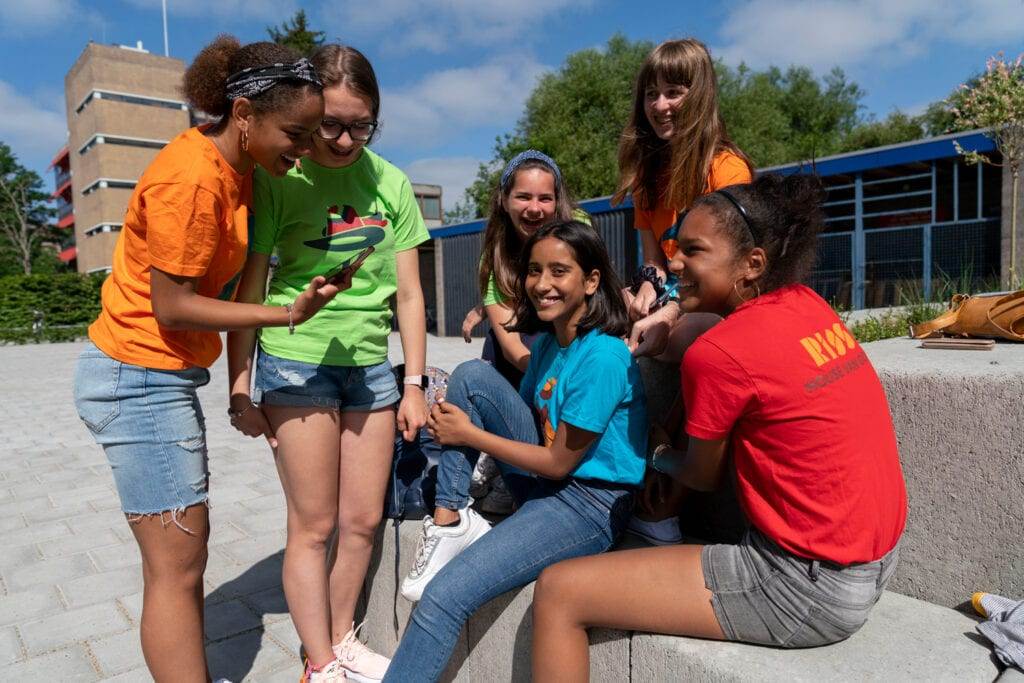
Most importantly, the Pastoral Programme makes way for a healthy discussion of topical issues. As a result, the programme is constantly adapting and changing to address the issues of today.
Dr Gilbert-Sáez gives us an example: “One issue that’s coming up often is the issue of women in society and the respect coming from students — boys especially. The perceived role and treatment of women in the world is something we are going to work on next year, with boys and girls.”
Foundation years: a skills-based approach
For many of us, the memory of the transition from primary to secondary education is probably tinted with a bit of anxiety. RISS pays special attention to the delicate process of this transition when it comes to their Grade 6 students. The school wants to nourish new student’s natural curiosity and engage their interests utilising a skills-based approach to teaching.
The RISS Rose Programme
Dr Gilbert-Sáez and her colleagues decided to create a programme that would appeal best to their new students. This is the RISS Rose Programme, which she describes as “a curriculum that allows us to deliver the basics of a great international education but also adds a more practical, hands-on series of real-world experiences.”
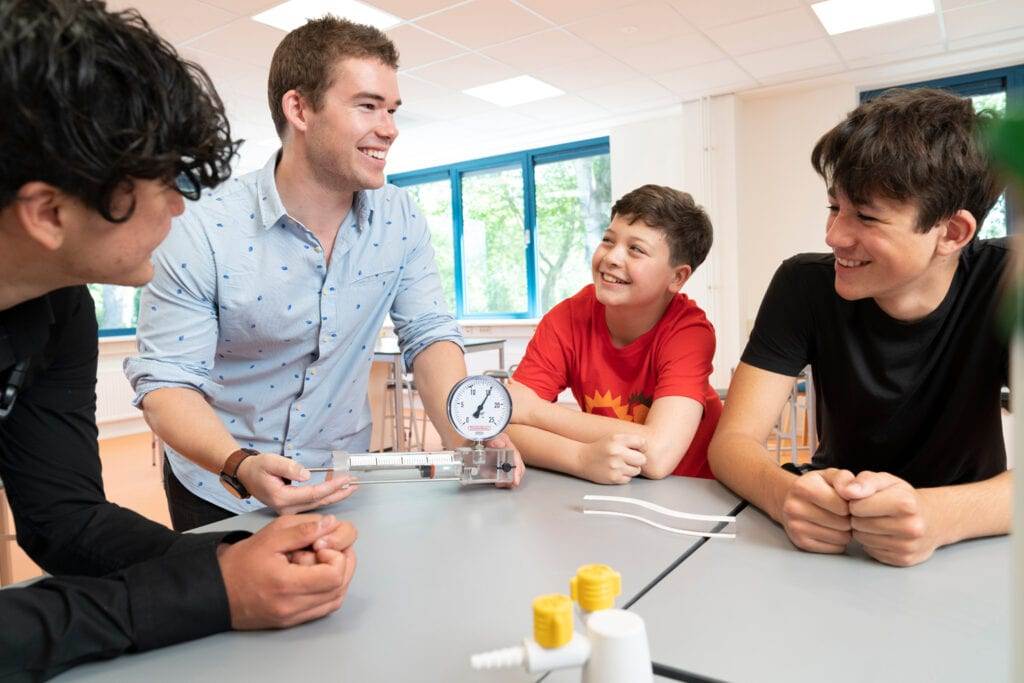
The Rose Programme has been in development for the past three-and-a-half years and is now ready to launch for the 2021-22 academic year.
“When you create your own curriculum you can input a level of responsiveness and the currency of things you want to share, as well as the rigour that is necessary to instil an interest in new things.”
A focus on vocational learning
Before curating the programme, Dr Gilbert-Sáez asked her teachers “If you were given the chance just for once to teach whatever you wanted, what is it that you would teach?” The result was a series of unique courses based on practical, vocational learning.
Life Through a Lens
One example is RISS’ “Life Through a Lens” programme. RISS is aware that many of its students capture images of their lives using their phones, so the teachers decided to play to their students’ strengths.
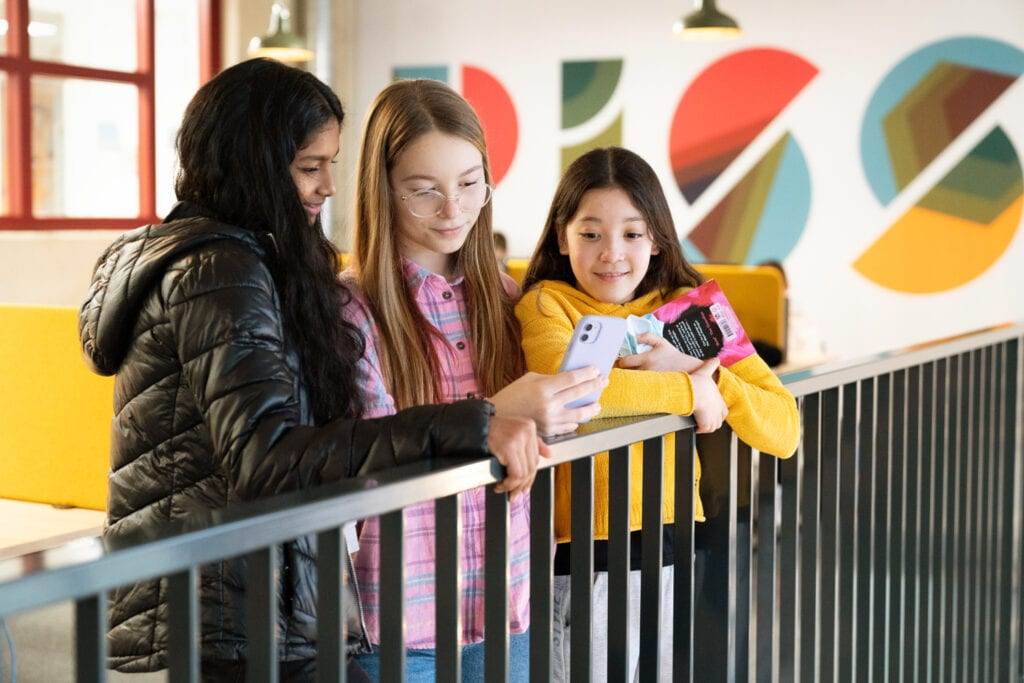
“If you look at the photographs that students take every day, we need to add a level of skill and competency to use so they can offer a reflection of who they are and why they do it,” Dr Gilbert-Sáez points out. This module introduces its students to creative and critical thinking, art, aesthetics, and identity whilst engaging their practical skills.
Mr Murphy’s Kitchen
Mr Murphy’s Kitchen is a programme that was developed to introduce young students to the science behind everyday life — through the fun of food and flavour. This fun and unique science course introduces its students to molecular gastronomy and engages them by using experiments that you can eat — lekker!
The school has teamed up with Wolfert Lansing Secondary School to take its students outside the classroom and introduce them to the wonderful world of food sciences and chemistry. By translating complex subjects into their occurrences in everyday life, the RISS Rose programme will engage its young students in new ways.
Speak up, speak out, speak well
Another promising aspect offered is “Speak up, speak out, speak well.” Dr Gilbert-Sáez points out that the ability to speak well is often neglected in traditional curriculums. “More often than not we are worried about literacy but we hardly ever focus on oracy.”
The importance of oracy is something that RISS wants to communicate to young students. “You can have a really brilliant idea and perhaps you can write it down, but if you cannot deliver it and convince others of what you’re saying your idea loses power.”
The protection of childhood
The Rose Programme looks to engage RISS’s new students and nourish their practical skills whilst also catering to their childhood and the natural curiosity that comes with it.
Dr Gilbert-Sáez strongly emphasises the importance of maintaining childhood. “It is a most precious time in the life of a human being and sometimes we are desperate to rush them, for them to hit university and live their life as adults,” she says. “But I feel we need to slow down that process and really let these children enjoy their childhood.”
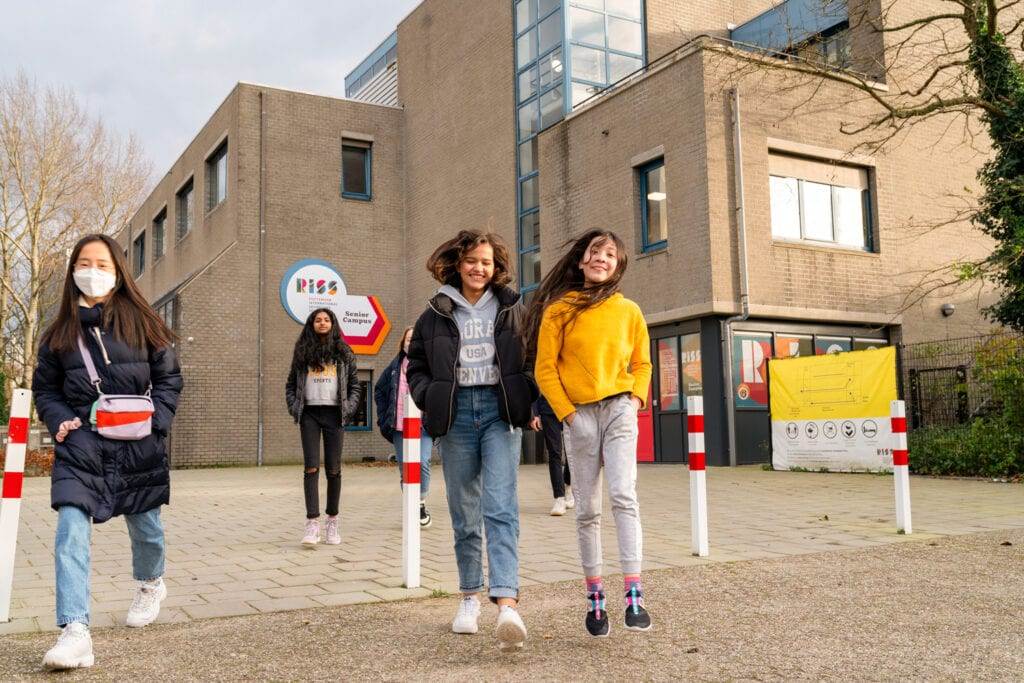
Through the Rose Programme, Rotterdam International Secondary School wants to allow students to embrace and enjoy this period in their lives and make meaningful memories in the process.
Middle years: a curriculum for international context
Armed with their skills from their foundation years, Grade 9-10 students at RISS will follow the International General Certificate of Secondary Education (IGCSE.) The curriculum surrounding this certification is tailored to offer an international and culturally sensitive education.
The RISS Reach Programme
However, RISS wanted to take their teaching a step further. In line with the school’s core values of self-awareness, curiosity, and integrity, RISS has launched the RISS Reach Programme.
Prepare for Higher Education
The RISS Reach Programme was curated with the student’s future years in mind. Whilst the IGCSE offers its students an international curriculum with traditional purposes, the RISS Reach Programme adds to this by teaching students the additional skills that they will need once they enter their final school years.
“Having single subjects or exams doesn’t allow for a holistic approach” Dr Gilbert-Sáez tells us, “RISS Reach is the type of programme that will teach the students how to research, connect with current issues, and make contributions to society.”
By teaching students these skills now, they will be more prepared for the International Baccalaureate Diploma Programme in the final two years of school where students are expected to be able to think, plan, and organise for themselves.
Senior years: higher education and the work world
Of course, the ultimate goal of Rotterdam International Secondary School is to educate students for life outside and after the classroom. Programmes such as RISS Rose and RISS Reach will help students greatly with the transition into this final stage of secondary education.
The IB Diploma Programme
In the final two years of their time at RISS, students will follow the International Baccalaureate Diploma Programme (IBDP) a worldwide, highly-esteemed qualification that enables students to enter work or higher education.
HE Guidance
RISS prepares its students for the world around them and also helps them to get ready for the transition from secondary education to higher education or work through its HE Guidance Programme.
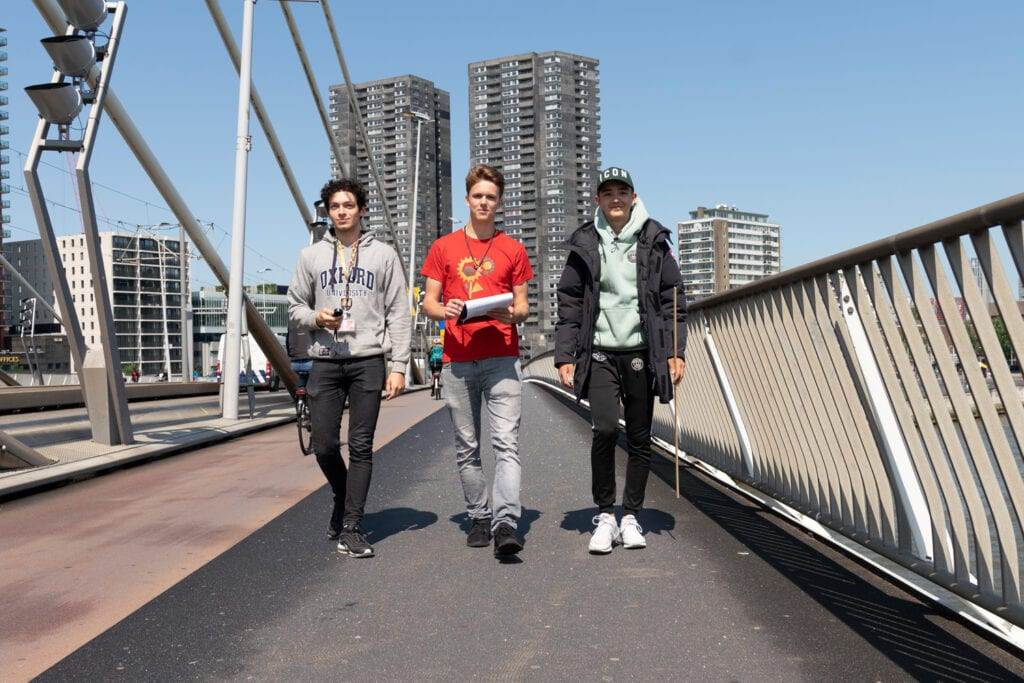
“The transition is a complex one, it is important that we prepare our students for the future,” says Dr Gilbert-Sáez. “We guide them and provide counselling so that students are ready to start taking steps and make choices about what they want to do when they leave school.”
RISS’s highly commended HE Guidance Counsellors assist students with researching potential career paths, curating a CV and personal statement, and helping students through various application processes.
Enrolment at Rotterdam International Secondary School
Interested in enrolling your child at RISS? Here’s all you need to know about the application process.
A virtual tour
Unsure about whether or not to apply? Perhaps a virtual tour of the school’s facilities will help you make your decision.
Application and interview
The application process starts online. Simply fill out your information using RISS’s application portal! Once the school has received the application, you and your child will be called in for an interview.
Eligibility
The Netherlands has strict rules surrounding who can attend an international school. Thankfully, RISS has laid these terms out nice and neatly on their website.
Fees
For a rundown of the various costs of enrollment, RISS has provided this helpful school fees booklet.
Rotterdam International Secondary School is working to add a new element to the education of its students. One that appeals to their childhood whilst also preparing them for the realities of an ever-changing world.
In closing, Dr Gilbert-Sáez emphasises this. “We offer a commitment to children’s wellbeing, a commitment to them having a childhood. Exposing the students to new experiences in a way that they will enjoy and then remember for the rest of their lives. We want them to enjoy school while learning, that is really important to us.”
Are you considering sending your child to an international school? Tell us your thoughts in the comments below!
Feature Image: Hannah Anthonysz fotografie/Supplied